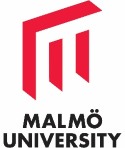The Educational Policy Shift of the 1960s
Educational Technology as a Means for Economic Growth
DOI:
https://doi.org/10.47868/scandia.v90i2.27272Keywords:
cybernetics, educational technology, historiography, modernization, 1960sAbstract
Current historiography often centers on the 1990s as the origin of the present education system, including its many problems. This article aims to demonstrate that a comprehensive understanding of these problems requires examining not only the 1990s but also the transformative changes that occurred in the 1960s. We begin by tracing the influence of cybernetics and systems theory on Swedish educational research. Education thus came to be seen as a social system that should consciously be designed to meet social needs. At the same time, teaching came to be seen as an impersonal goal-oriented process of behavioral change. This cybernetic perspective on education curtailed the autonomy of teachers and relegated them to being mere ”components” of the education system.
We then shift our attention to the question of which beliefs concerning society and social improvements rendered the cybernetic view of education attractive. This question leads us to modernization theory and the Stockholm school of economics, which were both instrumental in shaping Swedish economic policy in the 1950s. Around 1960, economists came to identify a well-functioning ”education system” as a crucial prerequisite for economic growth. This change in attitude spurred a surge in funding for educational research and development to the extent that we can retrospectively speak of the emergence of a corps of educational researchers in the 1960s, something that did not exist before.
In the concluding section of this article, we discuss how top administrators approached the construction of the education system and their funding of research and development. They thought of education as a ”production process” that should be made subject to ”automation” by means of scientific research and technology, similar to what had previously occurred in the fields of agriculture and industry. Teacher-led improvement efforts were a thing of the past – what was now needed was well-funded research carried out by teams of professional researchers.
Downloads
Published
Issue
Section
License

This work is licensed under a Creative Commons Attribution-NonCommercial 4.0 International License.





